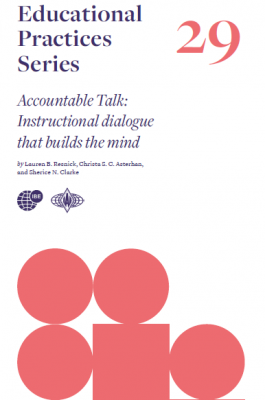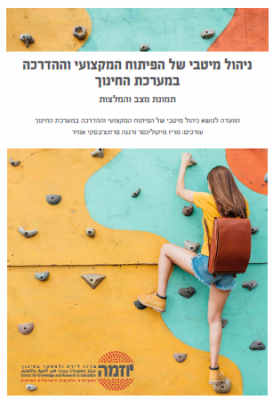Citation:
Abstract:
There is growing scholarly consensus about the types of teacher interactions and the features of teacher dialogue that are conducive to professional learning in school-based, peer-led teacher communities of learning. However, reliable tools to assess such interactions are scarce, even though they are essential for quantitative, systematic studies on the processes, conditions and outcomes of productive pedagogical dialogue. In the present work, we built on existing conceptual definitions in the literature, extracted key characteristics of productive pedagogical dialogue and translated them into operational definitions. These were then tested, refined and re-examined in an iterative process, based on 41 randomly sampled teacher workgroup transcripts from a larger, heterogeneous data set of audio-recorded meetings. The main outcome is the Collaborative Inquiry into Practice (CLIP) scheme, which comprises 13 variables, organized on three dimension of teacher team dialogue: content-related (what do teachers talk about), epistemic-structural (how do they reason and talk about it), and participatory (who participates and how). The advantages of CLIP are that it is reliable, valid and generic (i.e., can be used in a large variety of workgroup settings). Detailed accounts of the development processes provide further insights into the challenges and opportunities of coding this type of data.




